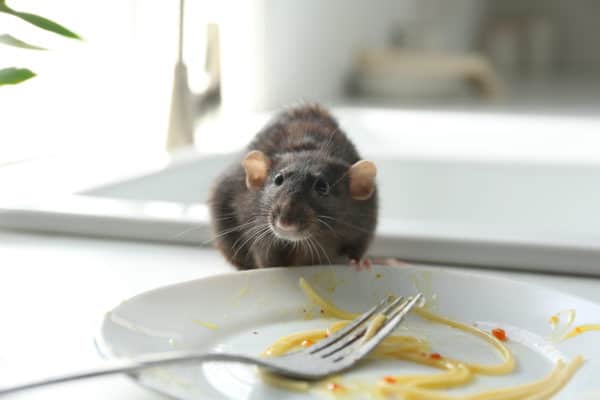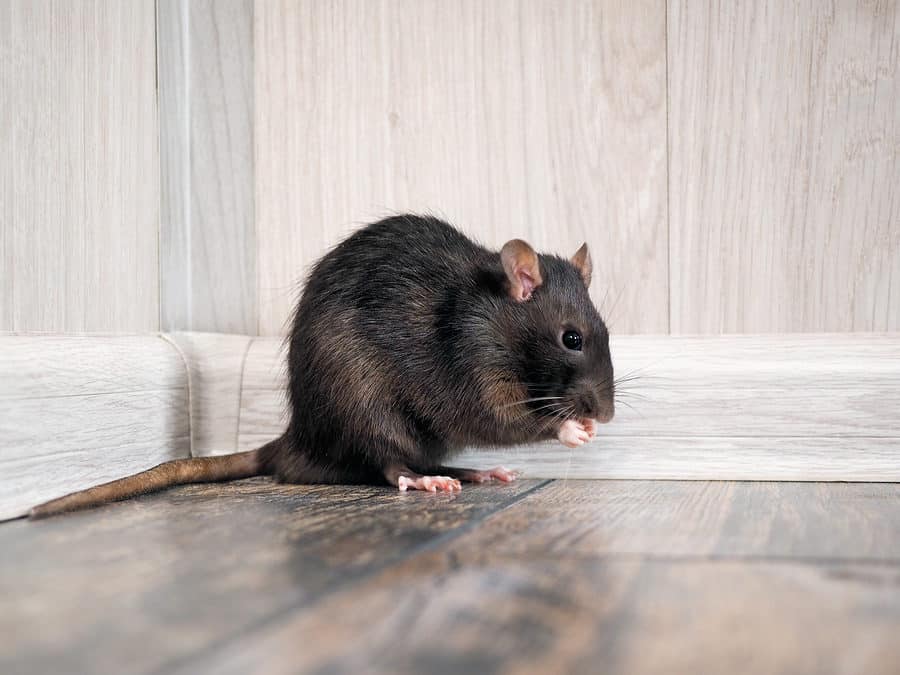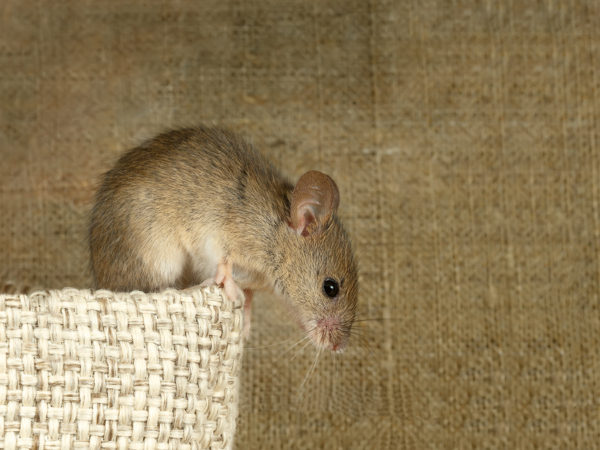READY TO GET STARTED?
REQUEST A FREE ESTIMATE
Fill out the form below or call (888) 466-7849 for a free, no-obligation estimate.

As the corona virus continues to spread, people around the world are drastically changing their daily routines. Tourism has come to a grinding halt. Restaurants are closed and people are staying home. What many don’t realize is this change in our daily lives is also affecting the ecosystem within cities. As there is less urban traffic, there is less food for pests and rodents – like rats. According to experts, if rats lose these established food sources (e.g. trash in cans in the park or dumpsters outside restaurants) then they will start fighting over any food that remains, even going so far as to kill each other in order to survive.
Because rats are having to get creative in finding new food sources, there is now a trending surge of rats invading homes and essential businesses in search of their next meal. Rats will follow the smell of food into homes, being as bold as necessary to find food in their effort to survive. Rats in homes pose serious risks – they will chew through wires and cables putting you at risk for fires and they carry diseases of their own which can easily be transmitted to you and your family. While there is no evidence that rats themselves can become infected with corona virus, there is some risk for spreading it to humans. Rats are known to crawl through sewer pipes containing human feces which has been shown to contain the virus. They then make their way into your home and contaminate any surfaces they touch with the virus-laden feces, potentially allowing humans who come in contact with these contaminated surfaces to contract the virus. The CDC reports that although this scenario is possible, the risk of transmission by feces is actually quite low.
To protect your family and/or essential business, the following rat prevention tips can help to prevent a rat infestation, limit the spread of disease, and keep your environment a safe-haven, during shelter-in-place orders and in the future:
If you notice a rodent problem in your home or essential business, contact a professional pest control company. Rats can cause serious health risks to your family or employees, as well as the risk for fire and other structural damage to your home and property. A licensed wildlife exclusion company will inspect your home to identify your animal problem, determine where they are getting in, remove them, and prevent the animals from getting into your home in the future. They can also inform you of any existing damage or contamination and provide you with a recommendation for repairs or clean-up.
5 Things That Could Be Attracting Termites to Your Home
Summer Wildlife Removal: Common Home Invaders
What is the Difference Between Traditional and Green Pest Control?

FACT. Rats are one of the most common pest issues homeowners face. Rats are known for being destructive by gnawing on structures in and around your home including utility pipes, wood structures, and wiring. In addition to the structural damage rats can cause, it is also possible for rats to pose serious health risks to humans. Diseases caused by rats can be transmitted through bites or scratches. Rat feces illness can be transmitted to humans through rat droppings and urine left around your home. Humans can also get sick through contaminated food caused by rats running across countertops where food is later prepared.
Just how sick can rats make you? Here are some common rat-borne diseases found in the United States.
Hantavirus pulmonary syndrome is a viral illness spread by deer mice, cotton rats, rice rats, and white-footed mice. HPS is spread by direct contact with rodents or their urine and feces, by breathing in dust contaminated with urine or droppings, or by bite wounds. Symptoms in the first phase of the virus include fatigue, fever, muscle aches, headache, dizziness, chills, nausea, vomiting, and abdominal pain. The symptoms then progress to coughing and shortness of breath. HPS is a severe and sometimes fatal respiratory disease with a 38% mortality rate. There is no specific treatment, cure, or vaccine for hantavirus infection.
Leptospirosis is a bacterial disease spread by rodents worldwide by either eating or drinking food and water contaminated with urine or contact through the skin or mucous membranes with water or soil that is contaminated with urine. Without treatment, leptospirosis can lead to kidney damage, meningitis (inflammation of the membrane around the brain and spinal cord), liver failure, respiratory distress, and even death. Common symptoms include fever, chills, headache, muscle aches, abdominal pain, vomiting, jaundice, diarrhea, and rash. The symptoms are often mistaken for other illnesses. If not treated, the second phase of symptoms includes kidney or liver failure or meningitis. The disease lasts between 1 and 3 weeks. Leptospirosis is treated with antibiotics.
Rat-bite fever is a bacterial illness spread by rats and possibly mice. The disease occurs worldwide and is spread through bites or scratches from an infected rodent, contact with a dead rodent, or eating or drinking food and water that is contaminated by rat feces. If not treated, RBF can be a serious or even fatal disease. RBF is not spread from one person to another. The early symptoms of RBF can be similar to the symptoms of other medical conditions. Common symptoms include fever, headache, muscle pain, headaches, vomiting, joint pain, and rash. If the illness progresses, more severe complication can arise such as abscesses, hepatitis, kidney infections, pneumonia, meningitis, or infections in the heart. RBF is treated with antibiotics.
Salmonellosis is a bacterial disease found worldwide that is spread by rats and mice. Salmonellosis is spread through eating or drinking food and water that is contaminated by rat feces. Salmonellosis is an infection caused by the Salmonella bacteria. Although commonly spread when a person eats contaminated food, the bacteria also can be passed between people and animals. Common symptoms include diarrhea, vomiting, fever, and abdominal cramps. Salmonella infections in people usually resolve within 5-7 days, and most do not require treatment other than drinking plenty of fluids. People with severe diarrhea may need to spend time in a hospital getting rehydrated with intravenous fluids.
Rat-borne diseases can cause serious and sometimes fatal illnesses in humans. The best way to avoid these diseases is to prevent rats from infesting your home in the first place. Here are some common home rat prevention tips:
Request a Free Wildlife Control Estimate
The Dos and Donts of Bird Nest Removal
When Should You Be Concerned About A Spider Bite?

Rodents are one of the most common pests that come into our homes in the winter. Rodents are in search of 3 things – food, water, and shelter – and they can find all 3 of them in and around our homes. Squirrels, raccoons, rats, and mice are some of the most frequently seen rodents in the colder months. Rodents can cause significant damage to property and can also be a big health risk to humans. Prevention is critical in managing and preventing an infestation of rodents. Check out these tips to keep the rodents out this winter: